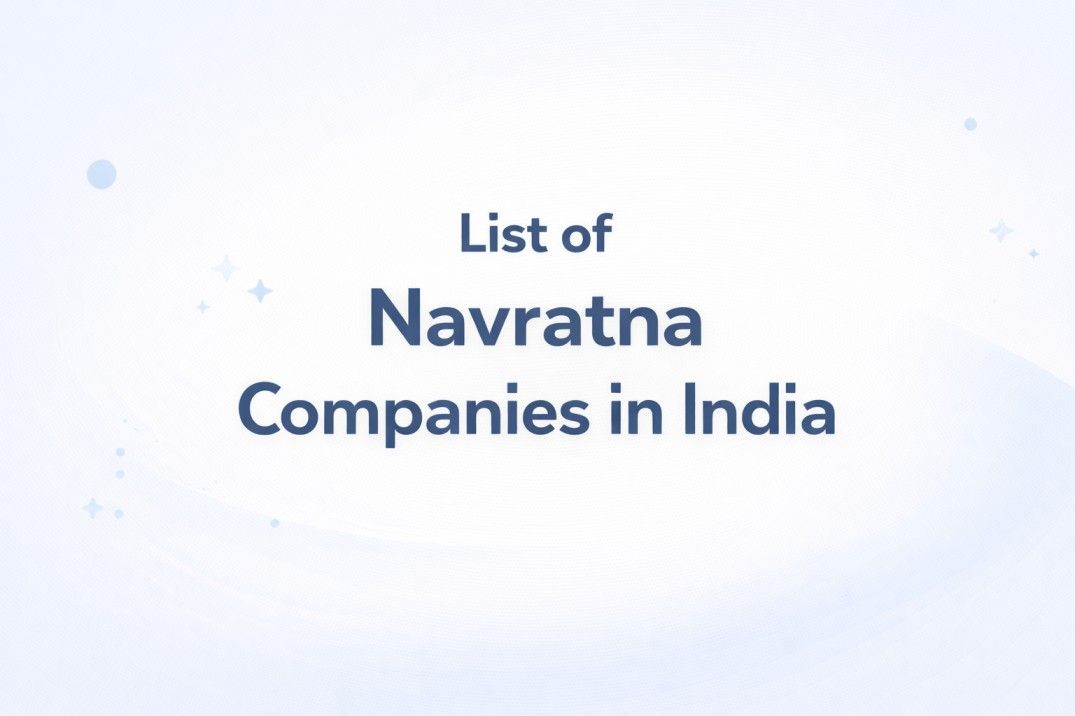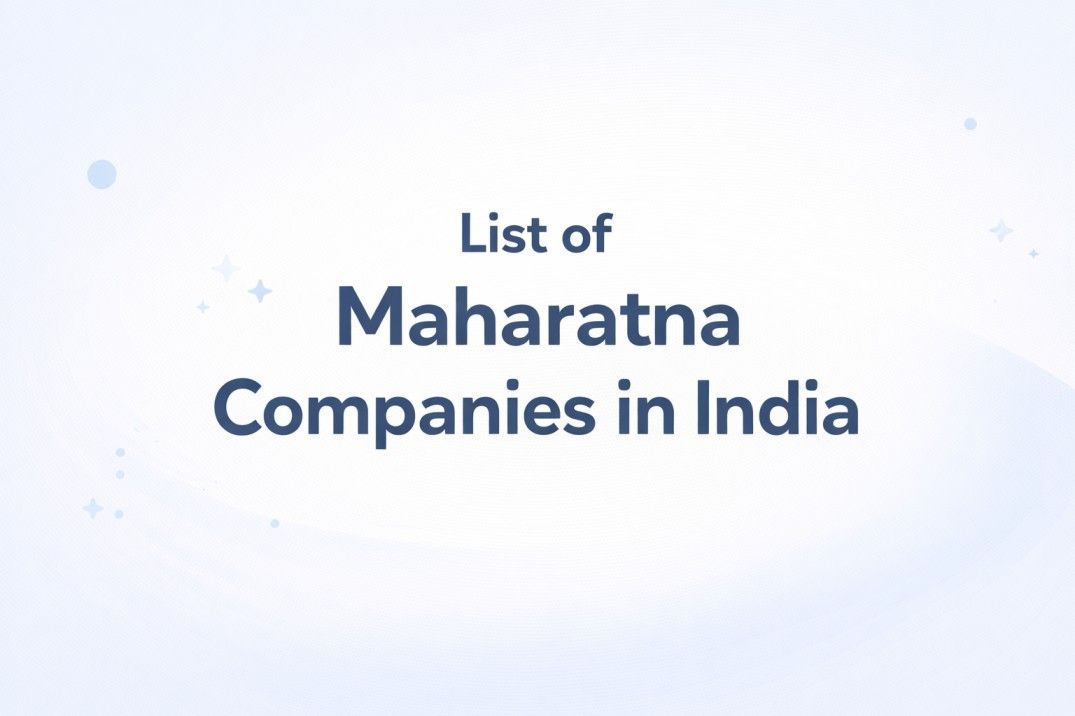What Is Commodity Trading?

- Published Date: May 12, 2022
- Updated Date: October 27, 2025
- By Team Choice
Imagine a marketplace where instead of stocks and bonds, people trade everyday essentials like wheat, gold, oil, or coffee. That’s the word of commodity trading. For centuries, commodities have been the backbone of global trade, and today, they are traded through organised exchanges in both physical and derivatives markets.
If you are wondering what is commodity trading, and how it works in India, this guide will help you understand the basics, risks, and strategies.
What is Commodity Trading?
Commodity trading in India is the practice of buying and selling raw materials, such as gold, silver, crude oil, natural gas, and various agricultural products, on regulated exchanges like the MCX (Multi-Commodity Exchange) and NCDEX (National Commodity & Derivatives Exchange).
Instead of trading physical goods directly, most transactions happen through futures contracts - agreements to buy or sell a commodity at a set price on a future date. This helps farmers, producers, and businesses hedge against price fluctuations, while traders and investors can speculate on price movements for potential profits.
Types of Commodities
Commodities are broadly classified into four main categories. Each category has its own characteristics, demand drivers, and role in the economy.
1. Agricultural Commodities:
These include products grown and harvested on farms. They are highly influenced by weather, seasons, and government policies. Examples: Wheat, rice, soybean, cotton, sugar, coffee, spices.
2. Metals Commodities:
Metals are further divided into precious metals and industrial/base metals.
- Precious Metals: Gold, silver, platinum (seen as safe-haven assets and used in jewellery & investment).
- Base/Industrial Metals: Copper, aluminium, zinc, nickel (used in construction, manufacturing, and infrastructure).
3. Energy Commodities:
Energy resources are vital for industries and households. Their prices are often influenced by geopolitical tensions and global supply and demand. Examples: Crude oil, natural gas, coal.
4. Environmental Commodities:
These are relatively new in the commodity space and focus on sustainability. They represent tradeable units tied to environmental goals, such as reducing carbon emissions or promoting renewable energy. Examples: Carbon credits, renewable energy certificates (RECs), emission allowances.
Commodities Traded on MCX
The Multi-Commodity Exchange (MCX) is recognised as India’s most advanced and investor-friendly commodity trading platform. With a strong focus on technology and innovation, MCX has become the preferred choice for traders across the country. It offers a diverse range of commodities across different sectors:
1. Bullion: Gold, Silver
2. Agricultural: Black Pepper, Castor Seed, Crude Palm Oil, Cardamom, Cotton, Mentha Oil, Rubber, Palmolein
3. Energy: Natural Gas, Crude Oil
4. Base Metals: Brass, Aluminium, Lead, Copper, Zinc, Nickel
Commodities Traded on NCDEX
The National Commodity and Derivatives Exchange (NCDEX) plays a crucial role in India’s agricultural economy. It provides a transparent and regulated marketplace for farmers, traders, and agri-businesses to manage price risks effectively.
1. Cereals and Pulses: Barley, Wheat, Chana (Chickpea), Moong, Paddy (Basmati)
2. Soft Commodities: Gur (Jaggery), Robusta Cherry AB Coffee
3. Fibres: Kapas (Raw Cotton), Cotton
4. Spices: Jeera (Cumin), Turmeric, Coriander
5. Oils and Oilseeds: Castor Seed, Soybean, Mustard Seed, Cottonseed Oil Cake, Refined Soy Oil, Crude Palm Oil
6. Guar Complex: Guar Seed (10 MT), Guar Gum Refined Splits
How Does Commodity Trading Work?
Let’s say you buy a crude oil futures contract on MCX at ₹6,800 per barrel. The margin requirement for crude oil is around 5%. This means you only need to deposit ₹340 per barrel to hold the contract.
If crude oil prices rise to ₹6,900 per barrel, you gain ₹100 per barrel, which is credited to your linked bank account.
If prices fall to ₹6,700 per barrel, you lose ₹100 per barrel, which gets debited from your account.
This illustrates how commodity trading provides significant leverage, but it also carries increased risk. This is because prices are highly sensitive to global supply and demand dynamics, as well as geopolitical events.
Steps to Trade in the Commodity Market in India
Let’s understand how to do commodity trading in India:
- Open a Commodity Trading Account: To trade commodities, you'll need to open a Demat and trading account. This must be done with a SEBI-registered broker who is a member of either the MCX or the NCDEX. Complete KYC (Know Your Customer) formalities with documents like PAN, Aadhaar, and bank details.
- Fund Your Account: Transfer money to your trading account to pay margins and cover potential losses.
- Research the Market: Study price trends, demand-supply factors, and global cues (like crude oil inventories, harvest cycles, or interest rate changes).
- Choose the Commodity: Select from categories like metals, energy, agricultural, or environmental commodities.
- Decide the Contract Type: Pick the right futures contract based on your risk appetite and trading goals (short-term speculation vs. long-term hedging).
- Place the Trade: Execute buy/sell orders online or through your broker on MCX or NCDEX.
- Monitor Positions: Track price movements daily since commodity markets are highly volatile. Adjust your strategy (hold, book profit, or exit) depending on market trends.
- Settle the Contract: Either square off before expiry (cash-settled) or hold till delivery (in case of physical delivery contracts, though most traders prefer cash settlement).
Advantages and Disadvantages of Commodity Trading
Much like other types of investments, commodity trading has its own set of advantages and disadvantages:
Advantages of Commodity Trading
- Portfolio Diversification: Commodities often move differently from stocks and bonds, making them an excellent tool to balance risk in an investment portfolio.
- Hedge Against Inflation: When inflation rises, the prices of commodities like gold, silver, and crude oil usually increase, protecting investors’ purchasing power.
- High Liquidity: Popular commodities such as gold, crude oil, and silver are actively traded, allowing investors to easily enter and exit positions.
- Leverage Opportunity: Futures contracts offer leverage by allowing traders to control a large position with a relatively small amount of capital, as they only need to deposit a fraction of the total value as margin.
- Global Exposure: Since international supply and demand affect commodity prices, Indian traders can capitalise on worldwide market trends.
Disadvantages of Commodity Trading
- High Volatility: Commodity prices are extremely sensitive to global events, weather patterns, and political decisions, leading to sharp price swings.
- Leverage Risk: While leverage boosts profit potential, it can also magnify losses, sometimes wiping out capital quickly.
- Complex Market Factors: Prices are influenced by multiple factors like currency fluctuations, international trade, and government policies, making it harder for beginners to predict trends.
- Short-Term Focus: Commodity trading often demands constant monitoring, as prices can change drastically within hours or even minutes.
- Possibility of Heavy Losses: Inexperienced traders who enter without proper research or risk management may face significant financial setbacks.
Key Risks in Commodity Trading
While commodity trading can be rewarding, it also carries significant risks that traders must be aware of before entering the market.
1. Market Risk: Commodity prices fluctuate rapidly due to demand-supply imbalances, global economic trends, and investor sentiment. Sudden swings can lead to unexpected losses.
2. Geopolitical Risk: Events like wars, sanctions, or trade restrictions often disrupt the supply of key commodities such as crude oil, natural gas, and metals, causing extreme price volatility.
3. Weather and Natural Risk: Agricultural commodities like wheat, soybeans, or cotton are highly dependent on weather conditions. Droughts, floods, or poor monsoons can drastically impact prices.
4. Currency Risk: Since most global commodities are traded in US dollars, fluctuations in the INR-USD exchange rate affect commodity prices in India. A weaker rupee often increases the cost of imports like crude oil.
5. Leverage Risk: Trading on margin means even small price movements can have a big impact on profits and losses. Over-leveraging can quickly erode trading capital.
6. Liquidity Risk: Some commodities, especially less-traded agricultural products, may lack adequate market participation. This can make it difficult to enter or exit trades at the right price.
Strategies for Commodity Training
Success in commodity trading doesn’t come from luck alone; it requires planning and the right strategies:
1. Hedging:
This strategy is used by producers, manufacturers, or businesses to protect themselves from adverse price movements. For example, a farmer expecting a soybean harvest can lock in a price through futures contracts to avoid losses if market prices fall later.
2. Speculation:
Traders take positions based on expected price movements to earn profits. For example, buying gold futures if global economic uncertainty suggests prices may rise.
3. Arbitrage:
This involves taking advantage of price differences in different markets or contracts. For example, buying crude oil futures on one exchange and simultaneously selling on another if there’s a price mismatch.
4. Trend Following:
Traders use technical indicators (like moving averages, RSI, & MACD) to identify whether prices are moving upward or downward and then follow the trend. For example, entering long positions when copper prices consistently trade above their moving average.
5. Spread Trading:
This involves buying one futures contract and selling another related contract to minimise risk. To illustrate, one could buy a crude oil futures contract for the coming month and sell a contract for a later month, intending to profit from the differing prices.
6. Scalping & Intraday Trading:
Short-term strategies where traders make multiple small trades during the day to capture quick price movements. For example, buying and selling natural gas futures within hours to benefit from intraday volatility.
Conclusion
Commodity trading in India has evolved into a structured and regulated market, providing opportunities for hedgers, traders, and investors. Whether you’re exploring agricultural commodities on NCDEX or metals and energy on MCX, understanding the risks and strategies is key to success.
In short, commodity trading can diversify your portfolio and act as a hedge against inflation, but it requires careful planning, market knowledge, and risk management.
FAQs
1. What does commodity trading mean in simple words?
Commodity trading is the buying and selling of raw materials like gold, silver, crude oil, and agricultural products through exchanges such as MCX and NCDEX to benefit from price movements.
2. Which commodities are most traded in India?
Gold, silver, crude oil, natural gas, copper, soybeans, and chana (chickpea) are among the most actively traded commodities in India.
3. What is the minimum amount required to start commodity trading?
The minimum amount depends on the margin requirement of the commodity. For example, gold futures may require a few thousand rupees as margin, while smaller contracts (like mini or micro lots) need less capital.
4. Is commodity trading risky?
Yes. Commodity trading involves risks like price volatility, geopolitical events, and leverage-related losses. However, with proper knowledge and risk management, traders can reduce these risks.
Recommended for you

List of Navratna Companies in India

List of Maharatna Companies in India

Share Market Prediction For Tomorrow
